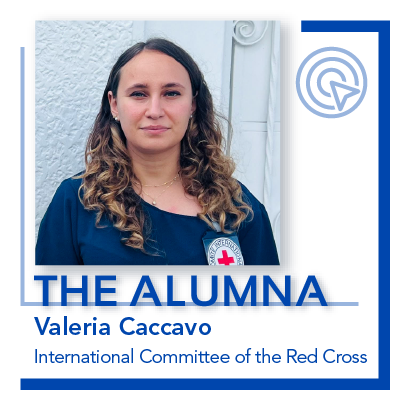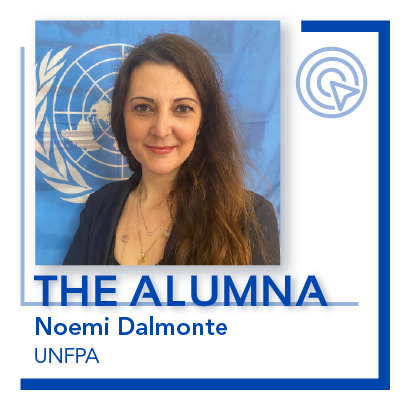
339 million people seeking help
IT IS THE ESTIMATED NUMBER OF VICTIMS FOR 2023 OF THE HUMANITARIAN CRISES AWAITING A RESPONSE THAT INDIVIDUAL GOVERNMENTS ARE LESS AND LESS INCLINED TO GIVE. IN THIS CONTEXT, THE ROLE OF HUMANITARIAN ORGANIZATIONS AND OF THE WOMEN AND MEN WHO WORK IN THEM IS EXPANDING, AND EVER GREATER MANAGEMENT AND LEADERSHIP SKILLS ARE REQUIRED, SO AS TO HELP THOSE IN NEED AND SOLVE THE DILEMMA OF COOPETITIONComplex emergencies have increased in frequency and intensity over the past few years. The COVID-19 pandemic, as well as ongoing geopolitical crises, such as the conflict in Ukraine, have also negatively impacted humanitarian crises, exacerbating existing issues and causing new ones. With an estimated 339 million people worldwide in need of humanitarian assistance in 2023 (+37% compared to 2022), it is that more and more governments have been and will be requiring support from other actors. As a result, without questioning the responsibility of governments to secure the welfare of its citizens by initiating, organising, coordinating, and implementing humanitarian assistance in the wake of an emergency (as indicated in the UN General Assembly Resolution 46/182 of 19 December 1991), over the following years, it is highly probable that the shift of relative power between nation states and non-state actors will continue.





SDG 17, "Partnerships for the goals", indicates that the private sector can be an influential player in improving humanitarian response by providing financial, logistical, and technical support as well as new practices and knowledge. With $51.5 billion required only in 2023 to address existing emergencies, the private sector and other “non-traditional” actors can assist with rebuilding efforts to promote long-term recovery, with benefits outweighing potential risks.
Complementing the role of governments and other actors, humanitarian organisations (HOs) are organisations characterised by a unique joint mission of preventing and alleviating human suffering. Whenever there is an insufficient response, inadequate capacity at the national level, or a specific request from the national government, assistance and protection is provided to affected populations. In this regard, HOs play a fundamental role in channelling international humanitarian assistance to where it is needed most. They operate in various fields, such as disaster relief, health care, education, and human rights.
In today’s humanitarian architecture, HOs impact human well-being in multiple forms and with multiple roles. Local humanitarian actors, such as the Red Cross and Red Crescent Movement. These organisations represent a global humanitarian network of over 270,000 employees and more than 900,000 volunteers in Europe. These types of organisations bring together individuals behind-the-scenes and are concrete enablers of practical, immediate response efforts, guarding the nexus with recovery and development. Non-governmental organisations perform a broad spectrum of functions ranging from advocacy for human and civil rights (e.g. Oxfam) to medical assistance (e.g. Doctors Without Borders) and humanitarian intervention in the field (e.g. Care). Given the relevance of their local knowledge and presence in the field, NGOs play a significant role as partners and implementers. Intergovernmental organisations such as the United Nations have different programs and funds (namely WFP, UNICEF, UNHCR, WHO, UNDP, FAO, OCHA), and operate in 193 countries with more than 37,000 employees. These organisations are multilateral by nature and, given their recognised role and capacity to coordinate the humanitarian response, recipients of 60% of all direct government humanitarian funding.




Humanitarian organisations have the unique role of augmenting the efforts of governments in responding to and addressing both onset and non-onset emergencies, in fulfilment with the principles of "ownership" (by beneficiary countries that are in the driving seat of their aid), "alignment" (between donors and partners relying on national systems), and "harmonisation" (between donors, both bilateral and multilateral) established in 2005 Paris Declaration. Their actions should enhance “capacity building” and “facilitate” the national actors, but this does not always come at ease. Given the myriad of parties active in specific regions, the liaison between Governments and humanitarian actors is not always easy. Humanitarian access under international humanitarian law (IHL) is often an obstacle for state and non-State armed groups. This is the case with the ongoing deteriorating security experienced in the Sahel, where armed groups must protect humanitarian groups and government restrictions on movement are placing large areas out of reach, as well as in Afghanistan, where the Taliban has banned humanitarian organisations from working in crucial areas or women from working for NGOs. Similarly, when looking at migration, Frontex failed to act on unlawful pushbacks and resulting in the European Parliament voting against the approval of the Frontex budgetary discharge for 2020 and decrees such as those issued by Italy's government (DECRETO-LEGGE 2 Jan 2023, n. 1) are seen as constraints to humanitarian organisations, multiplying the costs of relief and violating international law provisions (e.g. UN Convention on the Law of the Sea, Palermo Protocol, EU law).
Thus, the orchestration of humanitarian organisations' activities is challenging; it has to be pursued with the proper management and leadership capacity to reduce the current leap and ultimately transform the current humanitarian architecture into a peer-to-peer partnership oriented towards mutual accountability where the “coopetition” (coordination vs competition) dilemma between humanitarian organisations as well as other actors will be resolved.
by Greta Nasi and Alexander Hiedemann, Director and Coordinator, EMMIO SDA Bocconi
Translated by Alex Foti
